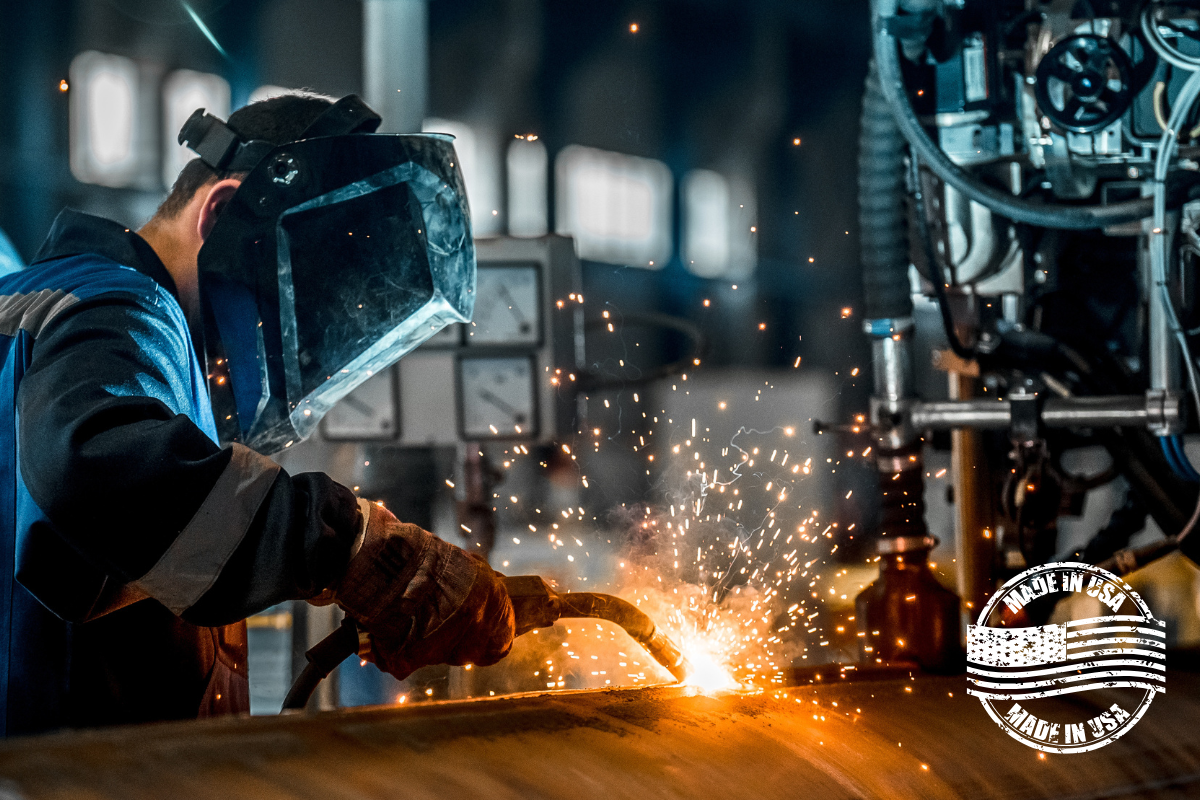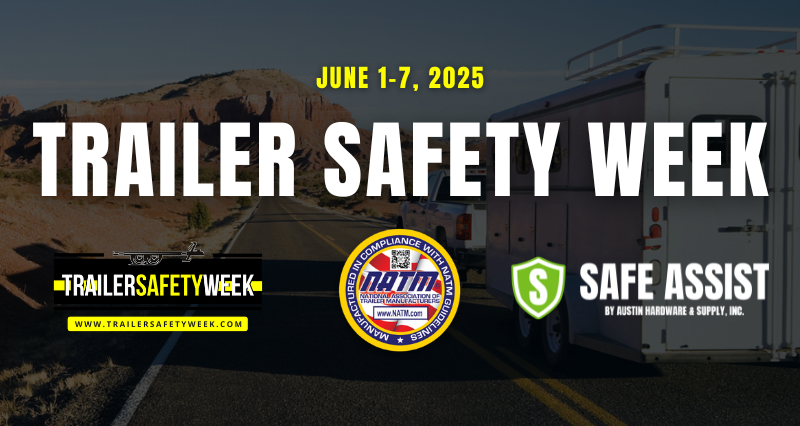.png?width=850&height=453&name=_TruckTrailer%20Blog%20(1).png)
Through the first half of 2024, the truck and trailer market continues to show signs of stabilizing. The market recovery from the excess capacity that originated during the pandemic due to an increase in new trucking companies has been slow. While there has been a reduction in the number of operating carriers, the adjustment and recovery have been slow. According to an article by Trailer/Body Builders, “The good news: The pandemic disruption and recovery have largely run their course, and traditional market cycles seem to be falling into place. The bad news: The freight cycle bottomed out in 2023, and the rebound remains on the horizon; that means that the heavy-duty trailer and truck markets can expect a down year in 2024.”
Companies are encouraged to focus on new trends as the market recovers to maintain competitiveness. Chris Bouchard writes, “The trailer industry is undergoing a transformative period, marked by innovative designs, technological advancements, and a heightened focus on sustainability. Encompassing recreational trailers to tractor trailers, several trends are shaping the future of this essential automotive industry sector.”
Smart Trailers, IoT, and AI
Smart trailers are becoming more popular as fleet managers better understand the value of tracking trailers independently from trucks. Critical data such as cargo details, internal and wheel-end temperatures, tire pressure, and door activity provide deeper insights, which lead to enhanced efficiencies.
The integration of IoT (Internet of Things) devices is also becoming increasingly significant to fleet managers. Real-time data on truck performance, fuel efficiency, and maintenance needs supports proactive decision-making, operations optimization, and downtime reduction.
Additionally, artificial intelligence (AI) is leading to a significant digital transformation in the market, which involves adopting new technologies and rethinking logistics to be more efficient, responsive, and intelligent.

Safety Innovation
Severe consequences of tractor-trailer accidents are prompting the adoption of advanced safety features in trailers. Enhancements in modern trailers that contribute significantly to safety and efficiency include blind spot detection systems, backup cameras, active rollover protection, air suspension systems, trailer stability assist (TSA), and trailer reverse steering control (TRSC).
Other Advanced Driver Assistance Systems (ADAS) include adaptive cruise control, lane-keeping assistance, emergency braking, and AI-driven predictive analytics.
The goal is to reduce blind spots, enhance driver visibility, and anticipate potential hazards, all of which contribute to improved driver safety and accident reduction.
ADAS also reduces occurrences of human error and driver fatigue to further enhance road safety. However, their integration raises legal and regulatory issues, such as standardization across different truck models and liability in case of system failures. Despite these challenges, ADAS is crucial in advancing the safety and efficiency of truck operations, promising a safer and more reliable future for the trucking industry.

EV, Green Logistics, and Sustainability
The trucking industry is undergoing a significant change thanks to the development of electric- trucks, driven by the need for sustainability and cost-effectiveness. The move towards electric trucks highlights the industry's commitment to sustainability. As sustainability remains a major trend, expect an increase in electric truck models and the infrastructure needed to support them. The industry is also embracing eco-friendly practices such as optimized routes and alternative fuels.
Trailer manufacturers are also focused on reducing their carbon footprint. For example, Airstream and REI introduced a sustainable trailer model featuring recycled materials, lightweight and sustainably grown wood cabinetry, solar packages, and composting toilets. Semi-trailers are becoming greener with innovations like electric axles, solar panels, and the Module Active Response System (MARS) technology.
Diesel trucks contribute significantly to greenhouse gases. Electric trucks producing zero tailpipe emissions are cleaner.png?width=300&height=300&name=TruckTrailer%20Blog%20Social%20Share%20(1).png) alternatives that aim to reduce carbon emissions and combat climate change. Advances in electric truck technology, such as high-capacity and solid-state batteries, are improving their efficiency and range. The continued development of high-speed charging infrastructure is essential for widespread adoption.
alternatives that aim to reduce carbon emissions and combat climate change. Advances in electric truck technology, such as high-capacity and solid-state batteries, are improving their efficiency and range. The continued development of high-speed charging infrastructure is essential for widespread adoption.
Additionally, government policies and incentives are crucial to promoting electric trucks. Subsidies, investments in charging infrastructure, and emissions regulations encourage adoption. Tax incentives and grants make electric trucks more financially viable for logistics companies. Low-emission zones, allowing only zero-emission vehicles, further drive this transition.
Autonomous Driving
The surge in autonomous trucking technology is set to revolutionize the industry, promising a future featuring more efficient, safer, and cost-effective freight transportation.
2024 marks significant progress in autonomous driving, especially driver-assist technologies that enhance safety and efficiency. While fully autonomous trucks are not yet common, these advancements are transforming the trucking industry.
AI algorithms, sensors, and machine learning have been critical developments in autonomous truck technology. Modern autonomous trucks are equipped with sophisticated sensors, cameras, and radar that enable precise perception of surroundings. These sensors facilitate critical components of autonomous driving, such as advanced navigation, real-time data processing, and the ability to make quick decisions, navigate traffic, and handle various weather conditions.
Autonomous trucks offer numerous efficiency, safety, and cost benefits, including continuous operation and reduced delivery times. Eliminating human error enhances road safety. Optimized driving patterns save fuel and reduce operational costs, which also help to promote sustainability.
Trailer Market Trends
The trailer industry is committed to innovation, safety, sustainability, and meeting diverse consumer needs. Trends include blockchain for logistics, regulatory compliance evolution, lightweight and aerodynamic designs, and off-road capabilities. These advancements cater to weekend travelers, full-time nomads, and business owners seeking more effective hauling solutions.
Blockchain for Logistics.png?width=300&height=300&name=TruckTrailer%20Blog%20Social%20Share%20(2).png)
Blockchain's ability to provide transparency, security, and efficiency presents a promising new supply chain and logistics management opportunity. Its decentralized ledger system creates tamper-proof records of transactions, which enhances the supply chain through smart contracts and secure data sharing.
This technology reduces fraud and improves traceability. Operations are streamlined by allowing real-time tracking, along with a reduction in paperwork and its associated costs.
Regulatory Compliance Evolution
Constant regulatory changes are part and parcel of the trucking industry. This year, further evolutions in compliance standards, safety regulations, and emissions requirements are expected. Staying updated and adapting to these changes will be crucial for companies to thrive in a dynamic regulatory environment.
Lightweight and Aerodynamic Designs
While electric vehicles represent a great opportunity, as previously discussed, at this point, their reduced range compared with diesel-powered vehicles is still an issue. To combat high fuel costs and the reduced range of EVs, thereis an increased demand for lighter and more aerodynamic trailers.
While weight has a less significant impact as long as it stays within 80% of the vehicle’s towing capacity, aerodynamics is crucial for improving fuel economy and EV range. Determining the most aerodynamic designs can be challenging but is essential for efficiency.
.png?width=1200&height=1200&name=TruckTrailer%20Blog%20Social%20Share%20(4).png)
ROV Trailer Capabilities
The market for recreational off-road vehicles is growing, subsequently significantly increasing demand for off-road trailers, especially by camping enthusiasts who seek remote locations. These trailers, valued at $25.87 billion in 2021 and projected to reach $47.77 billion by 2030, according to Verified Market Research®, feature robust suspensions, reinforced chassis, and durable exteriors to handle rough terrain.
Austin Hardware and Supply is committed to helping you stay ahead of the curve.
We stock thousands of items from leading manufacturers that meet the changing needs of the truck and trailer industry. In addition, our in-house engineers are here to help you reimagine and redesign products that will help you keep up with market trends.
Our revolutionary Safe Assist trailer ramp door assist is just one example. If you have a product you feel can be optimized for today’s changing environment, please contact us. Our engineers will be happy to listen and help bring your vision to life.








